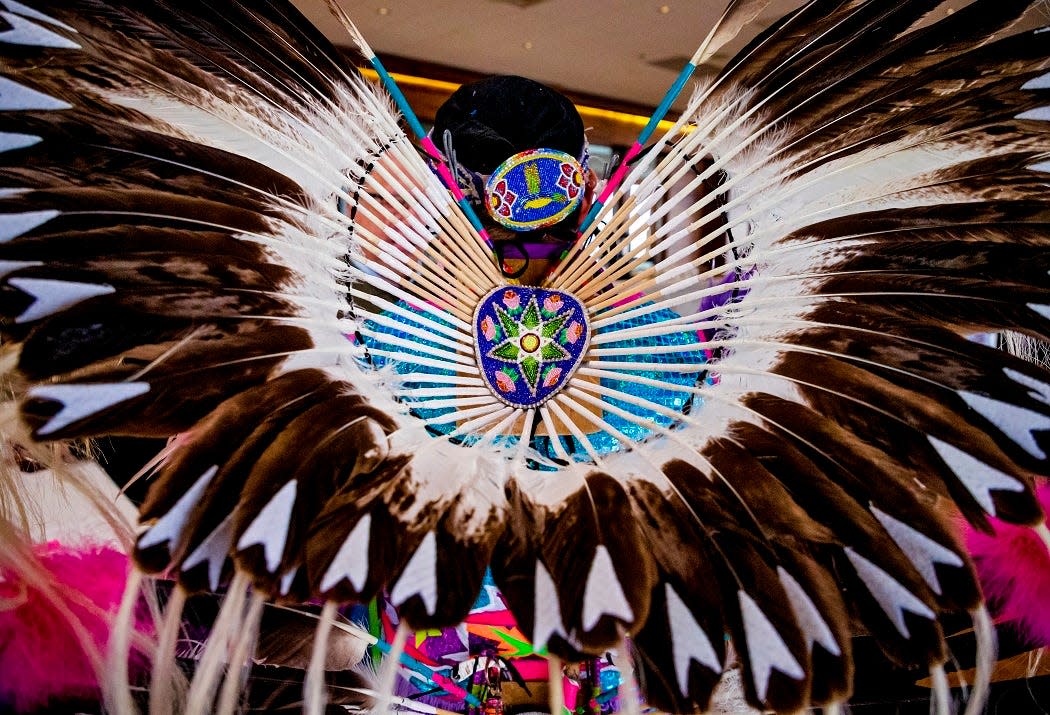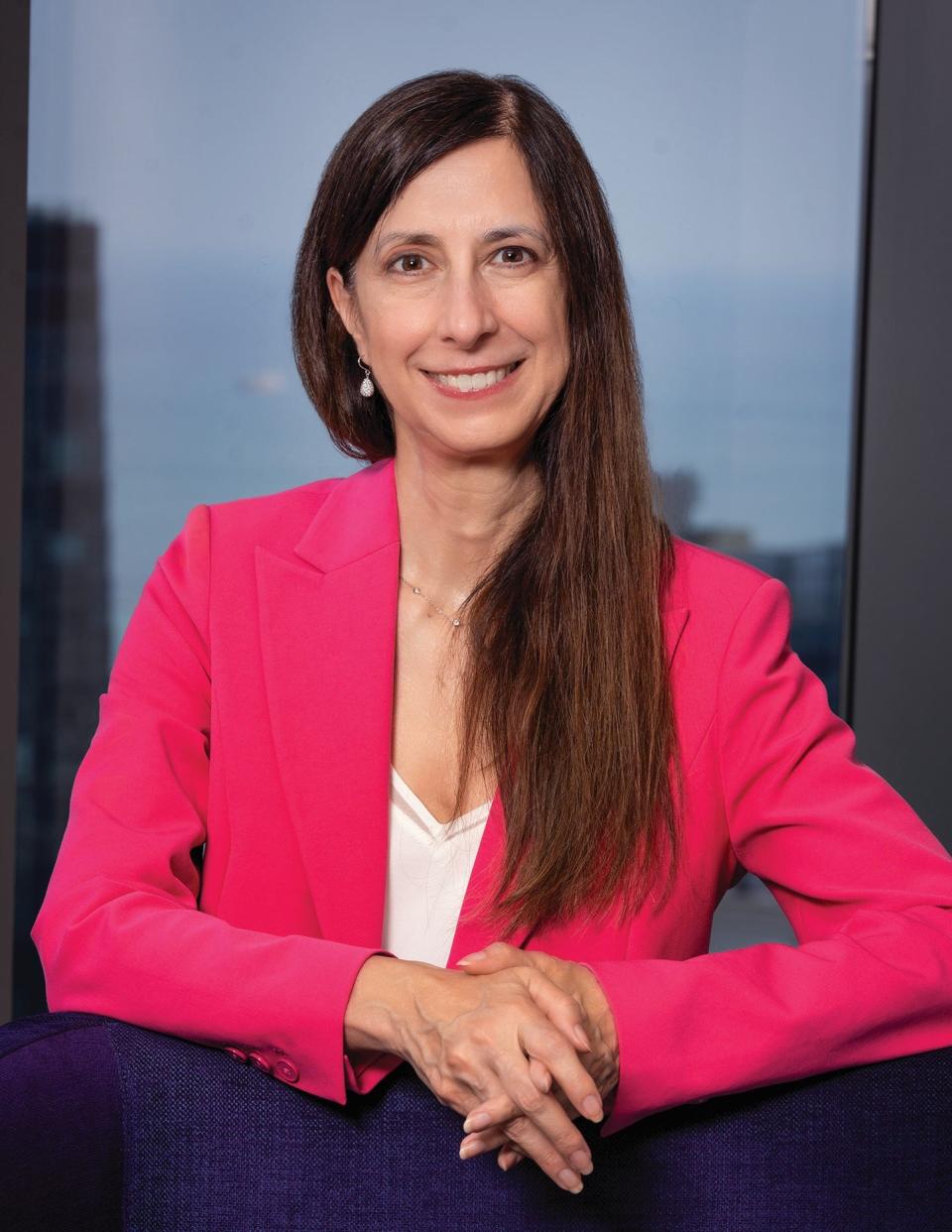Guest: Today is a time to celebrate, but also acknowledge painful shared history with the Freedmen

- Oops!Something went wrong.Please try again later.
Indigenous Peoples’ Day is a relatively recent celebration of the contributions Indigenous people have made to this country, and a reminder of how long it’s taken for America to fully own its intertwined, painful history with Indigenous peoples, one marred by conquest and colonization, broken treaties and disputed lands. That’s why it’s essential to celebrate the remarkable strides we’ve made, from seeing Deb Haaland serve as the first Indigenous U.S. secretary of the Department of the Interior and Sharice Davids as the first openly LGBTQ+ Native American in Congress, to witnessing the notable legal victories like Haaland v. Brackeen, which has affirmed tribal sovereignty.
But today we must also acknowledge our full, complex and often painful shared histories with the Freedmen — descendants of those enslaved by some tribes — who continue to strive for recognition and full tribal citizenship rights.
The Muscogee (Creek) Nation court ruled in favor of citizenship for two Freedmen descendants in late September, a stark reminder of the ongoing struggle for recognition within our tribes. This ruling underscores the crucial need for comprehensive discussions around tribal citizenship and inclusivity, propelling us to confront and resolve our internal complexities. The case is not just a victory for the Freedmen; it’s a triumph for the Creek Nation. But the subsequent vow to appeal by the Muscogee tribe’s district attorney demonstrates the persistent tensions surrounding this issue, and the urgent need for conversation and reform around tribal citizenship and inclusivity.
The Cherokee Nation, of which I am a citizen, has made strides in recognizing Freedmen’s rights, but it’s a journey marked by complexities and resolutions advancing, and sometimes regressing, over some 150 years. It wasn’t until a 2017 U.S. District Court ruling that the Freedmen regained full tribal citizenship rights, with over 11,000 now recognized as proud citizens today. This step was much more than an advancement; it was a rectification, acknowledging the shared struggles between the Cherokee and the Freedmen, and paving the way for unity and reconciliation within the tribe.
We could not have succeeded in this without an unequivocal vision of justice from our principal chief, Chuck Hoskin Jr., who has continuously and fervently championed for the inclusion of Freedmen, who has passionately argued that “our nation is stronger when we move forward as citizens together and on an equal basis under the law.” We cannot foster understanding, reconciliation and heal the wounds of the past without fully owning our story.
And we could not have succeeded without Marilyn Vann, a descendant of Cherokee Freedmen and a longstanding advocate for their rights who now holds the first governmental role in the Cherokee Nation. Her appointment is not just a personal triumph, but symbolizes the enduring struggles for recognition among the Freedmen and serves as a beacon of hope and a reminder of the complicated path we must navigate.
The rightful inclusion of Freedmen within the tribal nations is not just about resolving internal disparities; it is about reconciling with our collective past and moving forward, united. It signifies our commitment to justice, allowing us to confront uncomfortable truths and foster understanding and reconciliation within our communities.
Today must be a celebration, but also a call to action to embrace the true diversity of our communities and strive toward recognition and visibility. So, as we reflect upon and celebrate Native Americans today, let us also commit to addressing the unresolved issues impacting us. Let us fully intertwine our histories, acknowledge the progress and the pain, and solidify our journey toward inclusivity and recognition, so that the paths we carve can foster healing and unity for all Indigenous peoples, including the Freedmen.
Only then can this day genuinely encapsulate the full spirit and breadth of our indigenous heritage.

Mary L. Smith is the president of the American Bar Association, its first Native American woman president, and an enrolled citizen of the Cherokee Nation.
This article originally appeared on Oklahoman: Guest: Indigenous Peoples’ Day a time for celebration, but also reckoning

